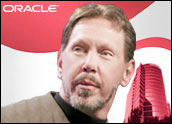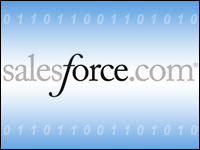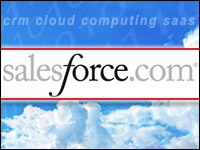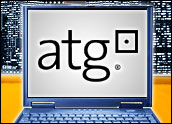
Oracle CEO Larry Ellison took the witness stand in a copyright infringement trial Monday and testified that the illegal downloading of Oracle software by a unit of SAP cost his company US$4 billion in missed license fees, according to press reports.
Appearing in his trademark outfit of black turtleneck under a jacket, the man that Forbes has named the third-richest in America reportedly remained cool and terse under cross-examination by SAP attorney Tharan Gregory Lanier, who tried to deflate damage estimates that were set up under questioning by Oracle’s high-profile attorney David Boies.
Oracle is seeking at least $2.3 billion in the suit, while SAP attorneys have argued the award should be closer to $40 million. SAP has already conceded that TomorrowNow, a now-defunct software maintenance firm that SAP acquired in 2005, improperly downloaded Oracle software.
Hunt for Apotheker
Ellison’s testimony in the Oakland, Calif., courtroom of U.S. District Judge Phyllis Hamilton reportedly took nearly an hour. He said that Oracle had invested about $65 billion in its software through original research and pricey acquisitions of such companies as PeopleSoft, Siebel Systems and JD Edwards. Ellison noted that if other companies were able to get that software for nothing, Oracle would have a hard time paying its 100,000 employees.
Ellison also argued that SAP could have potentially picked off 20 to 30 percent of Oracle’s customers, according to reports, while SAP’s attorney, Lanier, said that only 358 Oracle customers actually shifted to SAP.
When asked to back up his claim of $4 billion in damages, Ellison reportedly said he could not point to any documentation as proof.
Overall, Ellison’s testimony appeared to be far less fiery than some of the comments he has made in public about SAP and its former leader, Leo Apotheker, who is now CEO of HP.
Oracle has reportedly hired private detectives to locate Apotheker so he can be subpoenaed to appear at the trial, since HP has refused to say which office its new chief is currently working from.
Why Trial Instead of Settlement?
Most corporate technology disputes end up settled out of court. For one, settlements tend to be cheaper.
However, “there’s a lot of publicity value to Oracle to air as much of this as they can in a public trial,” Jim Dever, head of Americas media relations at SAP, told CRM Buyer.
“Oracle gets two-for-one in taking on HP as well as SAP,” Dever continued. “It’s rather transparent they’re going after SAP while also focusing on HP and inflating the role of Leo Apotheker. It’s a transparent campaign between Ellison and the HP board. Ellison is using the trial to impugn the actions of the HP board in hiring Apotheker.”
At the time of the TomorrowNow breaches, Apotheker was not in the highest reaches of management at SAP, Dever pointed out.
“Leo Apotheker was the head of sales at the time when TomorrowNow was acquired,” he said. “Oracle is trying to say he had management responsibility. In contrast to the positioning by Oracle, Leo Apotheker oversaw the sales only.”
Since SAP has conceded that its TomorrowNow unit downloaded Oracle software, the trial has come down to what amount it should reimburse Oracle for damages: SAP says $40 million, while Oracle has pegged its losses at $4 billion.
“We believe that $40 million is the value of the customers who actually did go to TomorowNow,” said Dever. “Oracle would have lost customers to SAP in the course of doing business anyway. Even the Oracle executives in emails have said the effect of TomorrowNow wasn’t much over time. In our view, the concrete amount should be closer to $40 million.”
Oracle did not respond to CRM Buyer’s requests for comment by press time.
The Theatrics of the Courtroom
While there is a gap between the amounts each company thinks is fair, it doesn’t necessarily take a trial to reach an agreeable amount.
“There’s no reason why they couldn’t have settled this out of court,” Charles King, principal analyst at Pund-IT, told CRM Buyer. “I feel like I stumbled onto one of those weird melodramas on TV.”
The trial may have been inevitable because of the size of the gap between what each company thinks is fair.
“The companies have a fundamental disagreement,” said King, adding that Oracle’s $4 billion claim “hasn’t been born out by the evidence before or during the trial.”
As an outspoken, brash executive, Ellison may see the trial as an opportunity to express his anger at rival SAP as well as HP, suggested King.
“Oracle’s efforts to bring Leo Apotheker into the trial suggests there are some activities backstage that have little to do with the case, and a great deal to do with grandstanding,” he remarked. “What we’re seeing here is enterprise theatrics on a grand scale.”




































